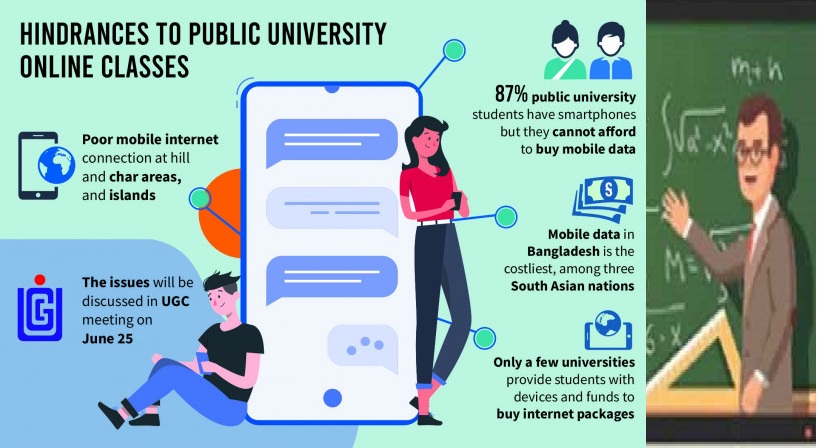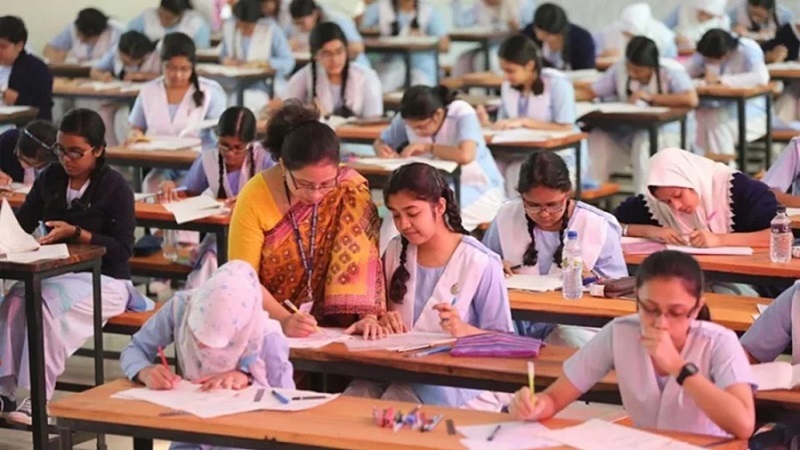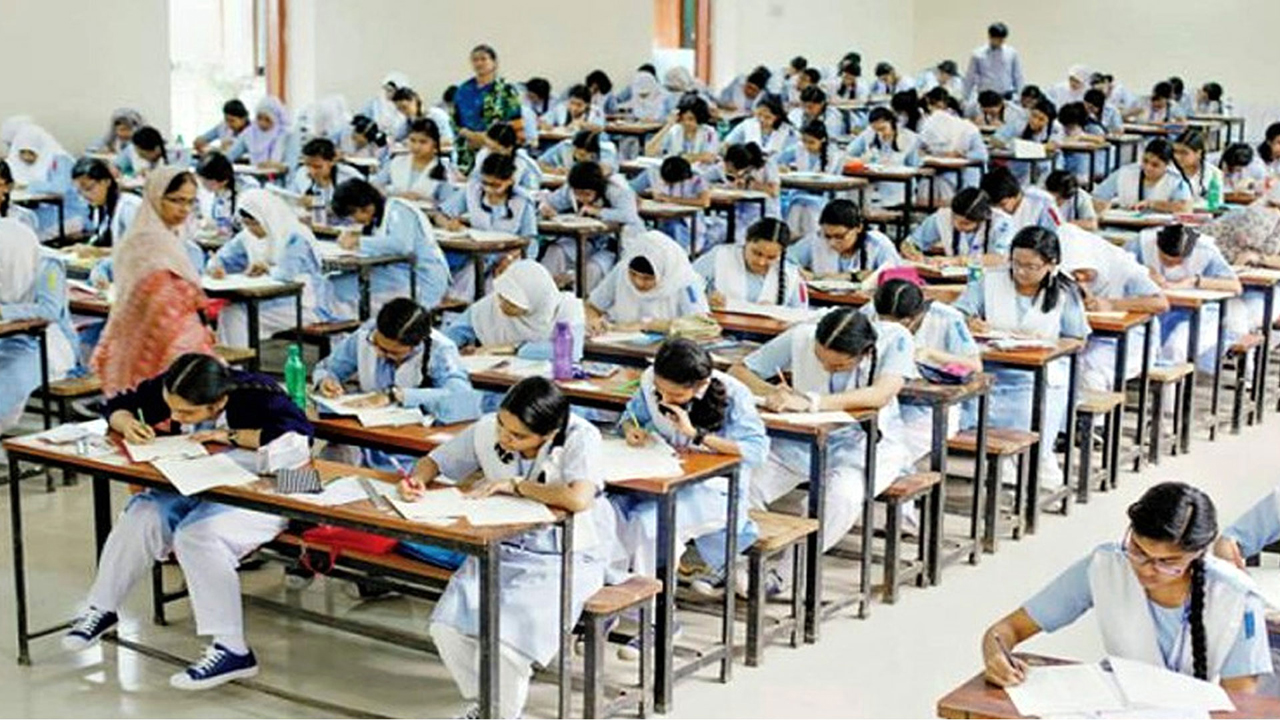The national telecom regulator says it is impossible to provide uninterrupted internet facilities as many areas are still without electricity connection and mobile network coverage
Sabbir Ahmed, a Dhaka University student of the public administration department, does not know how he will make up the academic gap as he cannot participate in the online classes of his university.
He has been staying at home at Monpura, a remote island in Bhola, as his campus announced an evacuation over the Covid-19 pandemic around three months ago.
He has no computer or laptop. His village has no broadband internet connection while the mobile phone network there, too, is of very poor quality. Moreover, Sabbir cannot even afford to spend Tk200 per day for high-cost mobile data to take part in three online classes, each of one-hour length.
A similar situation prevails at all hill districts, char areas, islands and other remote areas in the country.
Poor or no internet connection and high-cost mobile data remain the major obstacles for a good number of university students from rural and remote areas, and from poor financial backgrounds, to be able to participate in online classes.
Some universities, like Bangladesh University of Engineering and Technology (Buet), are trying to mitigate their students' pain by subsidising internet for them. But no university has, in their stock, a solution to the country's perennial challenge of making internet connections available in all regions.
According to a recent report by cable.co.uk – a UK-based website that compares global internet pricing, Bangladesh charges the highest ($0.99) for one gigabyte of mobile data among three South Asian nations – India, Sri Lanka ($0.87) and Bangladesh. India is the cheapest ($0.26) not only among these neighbours but also globally.
Educationists say the launching of online classes will not yield any positive result if these issues are not solved.
But Md Jhohurul Haque, the chairman of the Bangladesh Telecommunication Regulatory Commission, said it is impossible to provide uninterrupted internet facilities because many areas are still without electricity connections and mobile network coverage.
Professor Dr Dil Afroza Begum, a member of the University Grants Commission (UGC), is well informed about the students' issue.
"Our education minister [Dr Dipu Moni] is trying to solve the problems. We will discuss it at a meeting with the vice-chancellors of public universities on June 25," she said.
The University Grants Commission (UGC) requested the public and private universities to introduce online classes and other academic activities using the internet on March 24.
Students have smartphones, yet…
The UGC has already conducted a survey on public universities and found that 87 percent of students have smart-phones, but most have no internet connection or cannot afford to buy mobile data.
Dhaka University's Institute of Education Research (IER), in its survey, found that students want to take part in online classes. But expensive data, poor connections, frequent power cuts and a lack of devices are major hindrances.
Another survey by the Chittagong University of Engineering and Technology has discovered that 40 percent of their students have no capacity to buy internet packages.
Sponsoring internet, devices
Most of the public universities are still facing the issue while a few others, especially science and technology universities, have overcome it.
Professor Dr Farid Uddin Ahmed, vice-chancellor of Shahjalal University of Science and Technology, said they started online classes on March 30.
"Yes, we faced many problems, including poor internet connection and students' inability to buy internet. But we overcame them by providing students with funds as well as some devices."
The university has completed a semester by this time and intends to introduce another in the first week of July, he also said.
On average, 80 percent of students took part in each online class, the vice-chancellor said, adding "We have also asked them to inform us about their monetary problem so that no student is deprived of online class facilities."
Review classes will be taken to make up the educational gap once the university reopens, he remarked.
Developments on other campuses
Meanwhile, Buet conducted trial classes and did a survey on their students. The survey found that, out of its 5,000 regular students, 1,000 were facing internet problems, 250 students had no device and 1,125 could not afford to buy internet packages.
Professor Dr Mizanur Rahman, director of students' welfare of Buet, said a student needs Tk60-70 per hour if they want to take part in online classes. About 50 percent of the students cannot afford the cost.
"An academic council meeting will be held [in Buet] on Tuesday (June 23). We will discuss it and provide funds to students to buy internet. But














